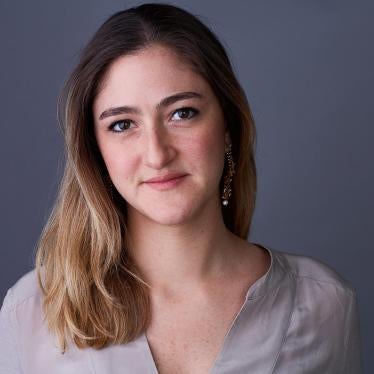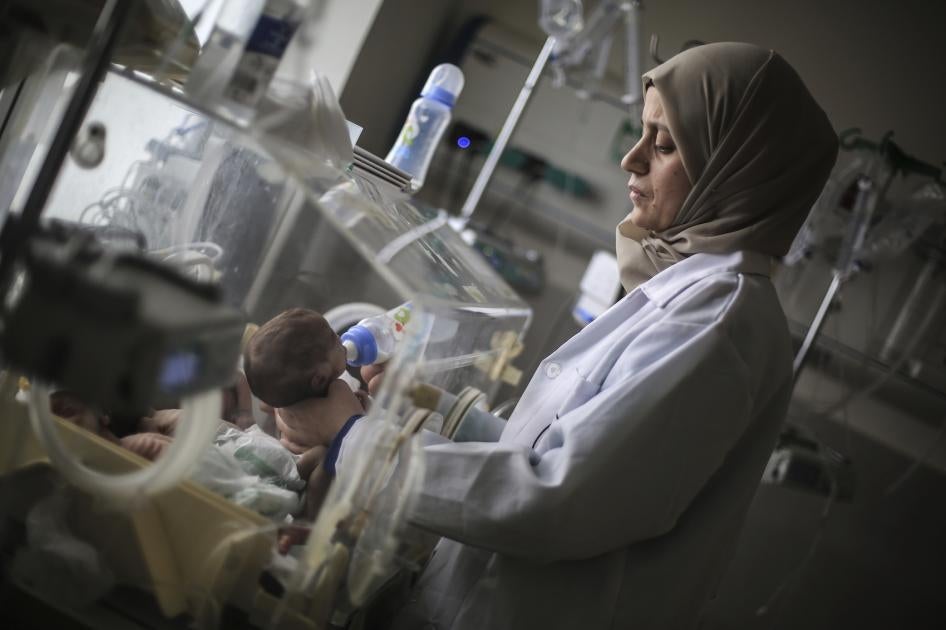In June my colleague and I went to Doha, Qatar to speak with Palestinian patients and their family members who had been evacuated from Gaza. The medical professionals treating them told us that these were the most complex trauma cases they had ever seen. There is a humanitarian imperative for other countries, with robust, sophisticated healthcare systems and available beds like Germany to take in Palestinians from Gaza who cannot receive the care they need in Gaza or in Egypt.
During the more than 10 months of Israel’s ongoing military campaign in Gaza, almost 40,000 Palestinians have been killed and over 92,000 injured, according to Gaza’s Health Ministry. Gaza’s healthcare system has nearly collapsed, only 16 out of 36 hospitals still partially functioning with severe deficit of medicines and fuel, and 500 health workers killed. Despite the Israeli military’s allegations that Hamas bases itself in hospitals, no evidence put forward would justify depriving hospitals and ambulances of their protected status under international humanitarian law.
In Doha, I met Ridana Zukhra, who told me about a strike in October that destroyed her and neighbors’ homes and killed dozens of people and injured her mother and brother. Zukhra went to Shifa Hospital with her young children, including 5-year-old daughter Ghazal, to care for them. In early November, Israeli forces surrounded Shifa, and told people there to leave. Zukhra’s mother was too injured to leave but as Zukhra, her wounded brother and her children left carrying white flags, she said a tank fired at them, severely wounding her daughter’s left leg. They ran into a nearby building, where a doctor who also sheltered there treated Ghazal without any medication or bandages, and had to amputate her left leg without anesthetic, and seal the wound with a heated knife. Ghazal’s wound developed gangrene.
They eventually were able to flee south, getting to Nasser hospital, where doctors said Ghazal had blood poisoning and needed to have her left leg amputated even higher. Ghazal eventually was medically evacuated with Ridana, but Ridana’s husband, brother and 3-year-old son with recently contracted hepatitis, were unable to evacuate with them.
Ghazal is one of hundreds of medical patients from Gaza in Doha who need specialized care of the highest level
Since October, Israeli authorities have granted permission to only a small fraction of those who required medical treatment outside of Gaza. As of late July, less than 5,000 had been evacuated to Egypt, including very few men under 60. Israeli forces closed the Rafah Crossing on May 7, blockingalmost all other Palestinians needing lifesaving care from leaving Gaza.
Even with the influx halted, however, Egypt’s healthcare system is straining under the caseload. We visited hospitals in northern Sinai in April and saw that thousands of patients from Gaza were unable to get the care they needed in Egypt.
While some governments have tried to bolster medical assistance inside Gaza, only a handful including Qatar, the United Arab Emirates, Spain, Turkey, Jordan, Italy, Belgium, and Norway are taking in some patients from Gaza.
The European Union’s health commissioner and crisis management commissioner have called on EU member countries including Sweden to evacuate more people from Gaza in need of treatment, which Sweden so far has been unwilling to do. In contrast, by January 2024, over 3,000 Ukrainian patients had been transferred to European hospitals.
The evacuations address the effects of ongoing hostilities. To address the causes, governments need to pressure the Israeli government to halt all unlawful attacks against civilians and health structures, and to stop deliberately blocking aid delivery. They should also encourage Israel to evacuate Palestinians from Gaza who can’t get the care they need in Egypt, and later ensure they can return to their homes if they wish to do so.
To save lives as the desperate situation worsens with the looming risk of a polio epidemic, the Swedish government should urgently work with Palestinian authorities and its embassy in Egypt to identify Palestinians from Gaza who can be evacuated and treated in Sweden - this is one concrete and measurable humanitarian action that would directly lead to saving lives of Palestinians.
--
Belkis Wille is associate crisis, conflict, and arms director at Human Rights Watch.










